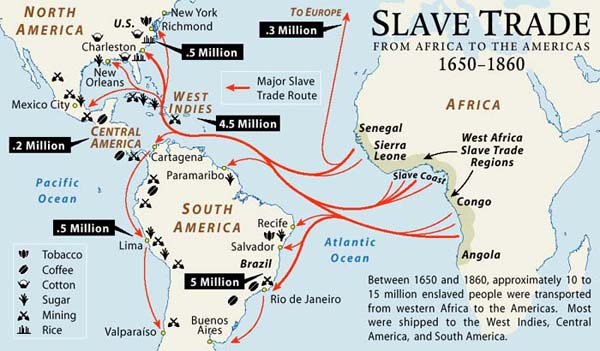Metroscapes
Active Member
Open House materials for the Sheppard Extension Project got posted the other day, and someone brought up the land acknowledgement at the beginning of the slides. Instead of derailing that thread (or frankly any others), I thought it'd be good to start a new one to consolidate the acknowledgements themselves, our settler history, continued suppresion of indigenous peoples, efforts to reconciliation, and anything else in that frame.

If you go to any public event these days, it's more likely than not you'll hear a land acknowledgement, somewhat like above. It's important to recognize that urban Toronto (and other aspects of development and life in southern Ontario) is built on lands that were lived on and cared for by nations of people that preceded settlers from Europe and the rest of the world. But does reciting these words and presenting these slides actually mean anything?
The CBC article I linked to above mentions making the acknowledgements meaningful. I went to a conference a couple weeks ago, where the lead MC was wearing a sealskin vest, and after briefly mentioning the traditional territories we were on, he proceeded to tell us about his adventure with a member of an arctic nation on a seal hunt, the traditional steps in preparing the seal, etc. It blew me away, I actually had not heard an acknowledgement like that before. Instead of getting blasted with these repeated, cut -and-paste statements, it was an interesting story that engaged me, one that communicated 'I went and learned traditional ways from this indigenous person, and it inspired me to double down on my reconciliation efforts. You can do it too.' It was an echelon above.
I thought I'd also mention the treaty map above. I've heard from indigenous peoples, and seen from my own research, that these maps are usually not complete / accurate / settled. Nation treaties with the Crown are sometimes unresolved and disputed. And they may not catch all the nuances between Aboriginal and treaty rights. If you want a concrete example, compare the map's representation of the Haldimand Tract with the one posted by Six Nations. And consider Six Nations are Iroquois peoples that were granted a tract of land on traditional territories of Mississaugas of the Credit (Anishinaabe peoples). It's also an interesting example because not all nations share their maps, and they see sharing maps they believe to be wrong as harmful.
Anyway, I hope to share more insights from my almost decade of personal and professional life (when it's not so late at night), but wanted to start with that as a conversation kickstarter.
If you go to any public event these days, it's more likely than not you'll hear a land acknowledgement, somewhat like above. It's important to recognize that urban Toronto (and other aspects of development and life in southern Ontario) is built on lands that were lived on and cared for by nations of people that preceded settlers from Europe and the rest of the world. But does reciting these words and presenting these slides actually mean anything?
The CBC article I linked to above mentions making the acknowledgements meaningful. I went to a conference a couple weeks ago, where the lead MC was wearing a sealskin vest, and after briefly mentioning the traditional territories we were on, he proceeded to tell us about his adventure with a member of an arctic nation on a seal hunt, the traditional steps in preparing the seal, etc. It blew me away, I actually had not heard an acknowledgement like that before. Instead of getting blasted with these repeated, cut -and-paste statements, it was an interesting story that engaged me, one that communicated 'I went and learned traditional ways from this indigenous person, and it inspired me to double down on my reconciliation efforts. You can do it too.' It was an echelon above.
I thought I'd also mention the treaty map above. I've heard from indigenous peoples, and seen from my own research, that these maps are usually not complete / accurate / settled. Nation treaties with the Crown are sometimes unresolved and disputed. And they may not catch all the nuances between Aboriginal and treaty rights. If you want a concrete example, compare the map's representation of the Haldimand Tract with the one posted by Six Nations. And consider Six Nations are Iroquois peoples that were granted a tract of land on traditional territories of Mississaugas of the Credit (Anishinaabe peoples). It's also an interesting example because not all nations share their maps, and they see sharing maps they believe to be wrong as harmful.
Anyway, I hope to share more insights from my almost decade of personal and professional life (when it's not so late at night), but wanted to start with that as a conversation kickstarter.





